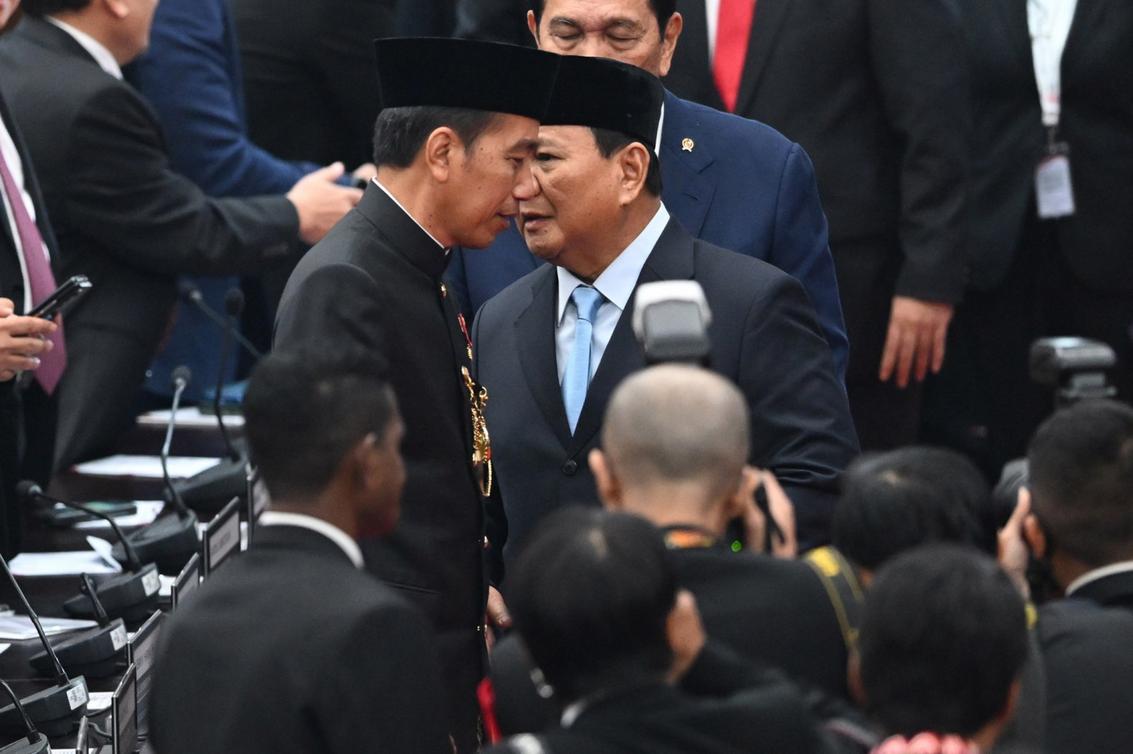Power Consolidation: Are Indonesia’s Institutions Still Independent? Let’s Talk Reality
JAKARTA, turkeconom.com – Power Consolidation: Are Indonesia’s Institutions Still Independent? Whoa, what a loaded question, right? This is one of those topics that sounds stiff in textbooks, but honestly—it’s got more twists than your favorite TV drama. So let’s dive in, not as some armchair expert, but as someone who’s watched, questioned, sometimes messed up, and learned a bunch along the way.
Why Independence Matters (And When It Feels Like a Myth)

Alright, so back in the day—think post-Suharto, Reformasi vibes—Indonesia went all out promising that “checks and balances” dream. Courts and anti-graft bodies got their swagger, Bawaslu cracked down on sketchy elections, and suddenly politic wasn’t just about who shouts the loudest. I remember being so hyped about that. I followed the KPK (Corruption Eradication Commission) stories like a Netflix. People actually got arrested! Justice felt real.
But, fast-forward a couple of years? Oof, that bubble has burst more times than I wanna admit. Remember how big deals like the Constitutional Court and KPK were meant to stand independent? There were moments I believed that line. But news of judge bribery, law tweaks, and that infamous KPK law revision hit—it’s like watching your favorite soccer team suddenly lose the plot. And let me tell you, nothing burns more than rooting for someone thinking they’re the underdog, only to realize the match is kinda rigged.
What I’ve Seen: Data, Downfalls, and Daily Mistakes
Let’s get real with the numbers for a sec. Transparency International, 2023—Indonesia slid again on the Corruption Perceptions Index. Down to 34 out of 100, and not in a good way. Does that shock me? Not anymore. The judiciary took some blows too. That time when the Constitutional Court Chief Justice (literally the President’s brother-in-law!) got hit with ethics violations over a controversial election ruling? Man, my family group chat WENT OFF. Everyone was arguing—”Is anything sacred or is it all just connections now?”
Let me be honest, the biggest mistake I used to make was thinking independence is just about rules on paper. It’s not. It’s about everyday people doing their jobs without strings attached. I learned the hard way—after getting excited about a new reform, only to hear my cousin rant about civil servants needing ‘recommendations’ just to get promoted. That’s when power consolidation isn’t an abstract thing, but a daily grind of favoritism. The more I listened, the more I saw how it’s not just about presidents or parliaments, but every little interaction where influence sneaks in.
So, Who’s Really in Control—and Does It Even Matter?
Sometimes, it feels like power in Indonesia is a game of hot potato. When one party gets cozy with state agencies, suddenly rules start to shift. Who makes the regulations? How do appointments happen? It all gets blurry. And hey, it’s not just at the top. I met an old uni friend who works for Bawaslu. He told me, “Bro, the number of calls I get before elections would make you drop your phone.” When proximity to power starts deciding who gets investigated or promoted, that’s not separation—that’s consolidation.
Here’s something I’ve picked up (often the hard way): most people don’t notice how subtle consolidation is until it smacks you in the face. Like, a new law quietly making it harder for civil society to participate or budgets getting redirected “for efficiency.” Tricky, right? It’s like watching politicians play chess with rules that change every move. We get so used to it that small steps back start to look normal.
Your Cheat Sheet: How to Tell If Institutions Are Losing Their Grip
Over time, I’ve built a sort of checklist on what looks fishy:
- Are major positions suddenly filled by political allies?
- Have watchdog agencies lost budget or bite?
- Are controversial court cases being resolved way too fast—or not at all?
- Do official statements sound more like campaign speeches than actual updates?
When I catch two or more of these happening at once, that’s usually a sign the “independent” stamp is getting faded out. I know because, embarrassingly, I’ve written a few posts before defending “new reforms” just to eat my words when headlines tell a different story. Lesson learned? Don’t get swept up by big announcements—look at the tweaks in the rules and who gets put in charge.
Lessons, Solutions & My Best Tips (For Everyday Folks Like You and Me)
I won’t pretend to have all the solutions. But here’s what actually helps, at least from my own trials and errors:
- Question Everything—Not in a cynical way, but if decisions seem rushed or too perfect, there’s probably a reason.
- Follow The Money and Appointments—Usually, what happens with budgets and who sits in key seats tells the real story.
- Look for Real Results—Has corruption gone down? Are decisions transparent? Or is it all PR?
- Keep Talking—Seriously. Those WhatsApp family debates? Annoying, but that’s where awareness spreads.
- Get Involved, Even If It’s Small—Join a webinar, send in feedback, or just share legit news. Every bit chips away at consolidation.
I’ve learned (sometimes the hard way!) that ignoring the small stuff lets things pile up until it’s too late. That time I didn’t check the source on a viral WhatsApp rumor taught me to always double-check, even if it annoys my friends. And yes, I’ll keep doing it, because the opposite—just shrugging and saying “that’s just Indonesia”—lets the cycle continue.
Is the Game Over? Not Even Close
If you’re still reading, here’s the honest answer to Power Consolidation: Are Indonesia’s Institutions Still Independent?—it depends on the day, the place, and who’s got the guts to speak up. The system’s far from perfect, but every nudge, every awkward family argument, every fact-check helps. We aren’t powerless, even when the big shots make it seem that way.
So yeah, expect setbacks. But trust me—as someone who’s tripped, ranted, and learned plenty—staying curious and calling things out makes a bigger difference than you think. Independence might wobble, but it’s not gone if we keep caring.
Let me know if you’ve got your own stories, or if you totally disagree. This is one of those chats where everyone’s experience counts. Drop it in the comments—I’m all ears, promise.
Read also about Government Spending to understand how public funds are allocated to services, infrastructure, and programs that drive economic growth and support societal well-being.











